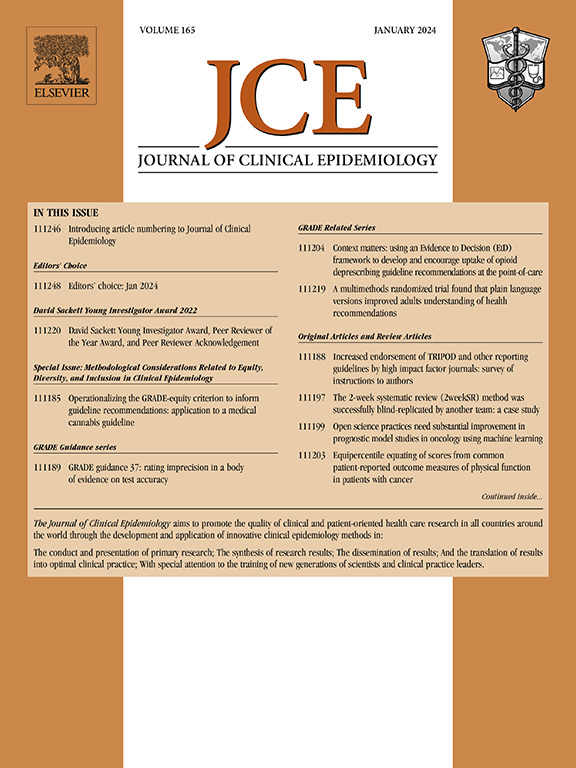如何:"范围界定审查?
IF 7.3
2区 医学
Q1 HEALTH CARE SCIENCES & SERVICES
引用次数: 0
摘要
范围界定综述是一种证据综述,其目的是在一个或多个确定的范围内或范围之间,确定和绘制关于特定主题、领域、概念或问题的现有证据的广度。范围界定综述有助于临床实践指南的制定和政策的制定,通过消除重复研究减少研究浪费,同时也是系统性综述的前奏。本文旨在简要介绍如何开展和报告范围界定综述、范围界定综述在证据综合生态系统中的作用和价值、范围界定综述与系统综述、图谱综述、证据与差距图谱和综述等其他类型证据综合之间的异同,以及如何克服范围界定综述的开展、报告和传播过程中经常遇到的挑战。本文章由计算机程序翻译,如有差异,请以英文原文为准。
“How-to”: scoping review?
Background and Objective
Scoping reviews are a type of evidence synthesis that aims to identify and map the breadth of evidence available on a particular topic, field, concept, or issue, within or across a defined context or contexts. Scoping reviews can contribute to clinical practice guideline development, policy making, reduce research waste by eliminating duplication of research effort, and be a precursor to a systematic review or inform further primary research. This article aims to provide a brief introduction of how to conduct and report scoping reviews.
Study Design and Setting
We will discuss the role and value of scoping reviews within the evidence synthesis ecosystem, the differences and similarities between these reviews and other types of evidence syntheses such as systematic reviews, mapping reviews, evidence and gap maps, and overviews, and how to overcome common challenges often associated in the conduct, reporting, and dissemination of scoping reviews.
Results
Scoping reviews have a role in the evidence ecosystem; however, we need to acknowledge their challenges.
Conclusion
Scoping reviews are a popular form of evidence synthesis, and further research is needed to provide clarity of current methodological challenges.
求助全文
通过发布文献求助,成功后即可免费获取论文全文。
去求助
来源期刊

Journal of Clinical Epidemiology
医学-公共卫生、环境卫生与职业卫生
CiteScore
12.00
自引率
6.90%
发文量
320
审稿时长
44 days
期刊介绍:
The Journal of Clinical Epidemiology strives to enhance the quality of clinical and patient-oriented healthcare research by advancing and applying innovative methods in conducting, presenting, synthesizing, disseminating, and translating research results into optimal clinical practice. Special emphasis is placed on training new generations of scientists and clinical practice leaders.
 求助内容:
求助内容: 应助结果提醒方式:
应助结果提醒方式:


